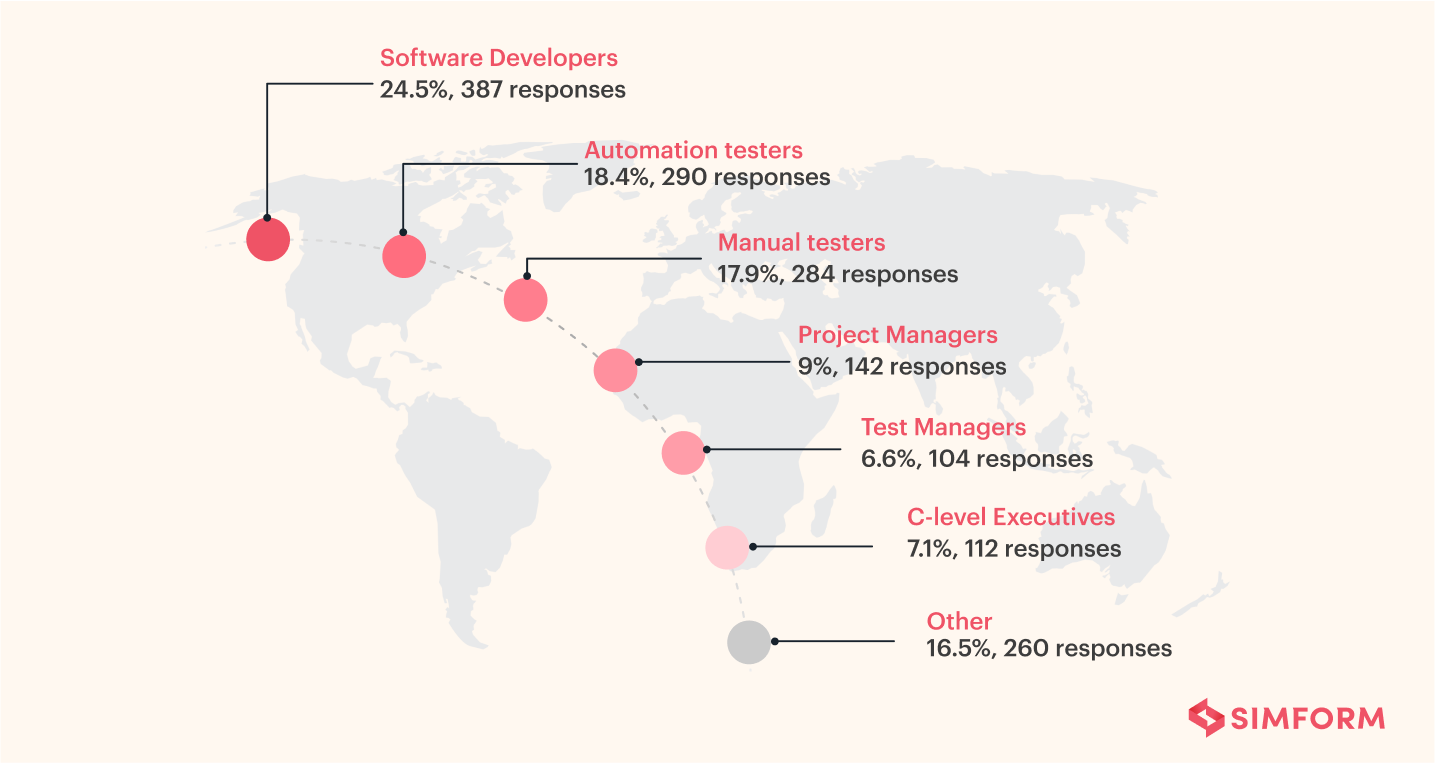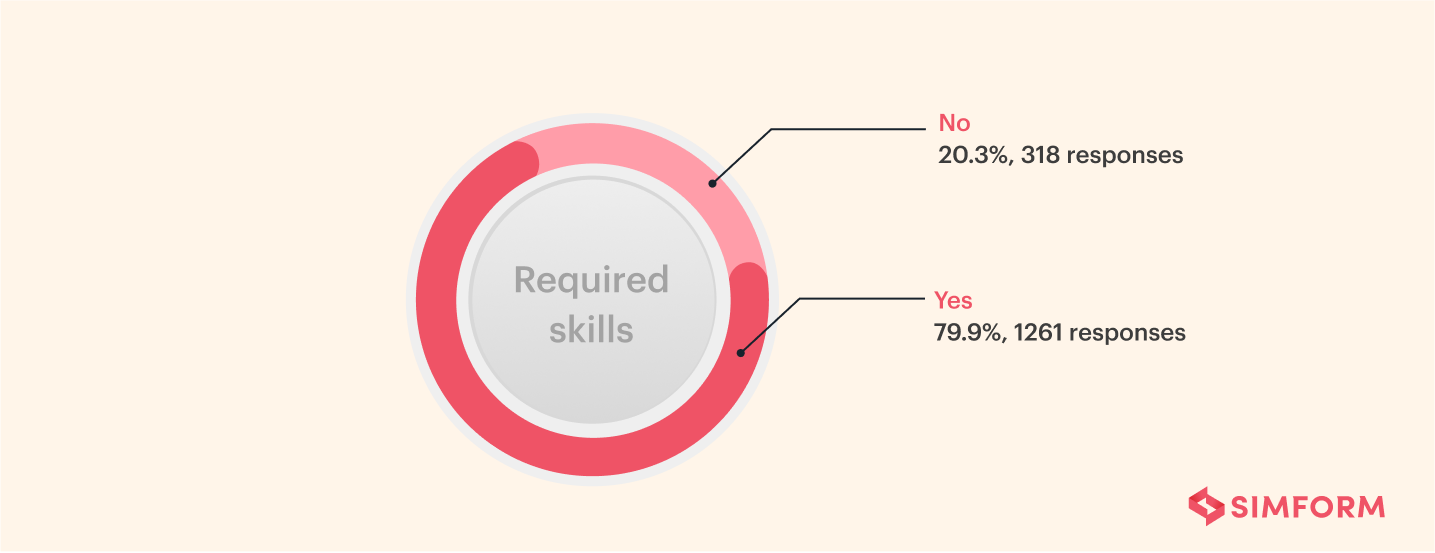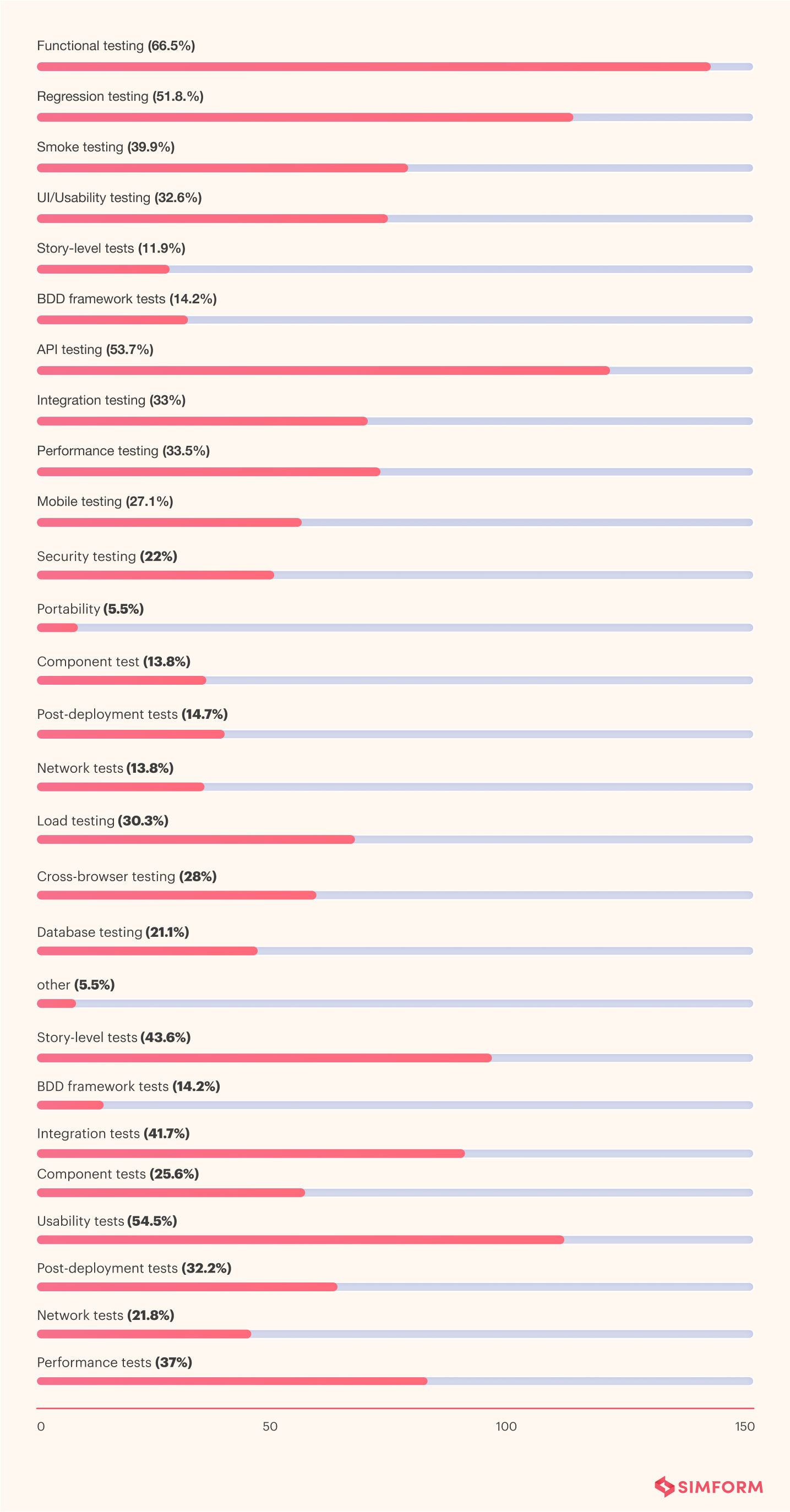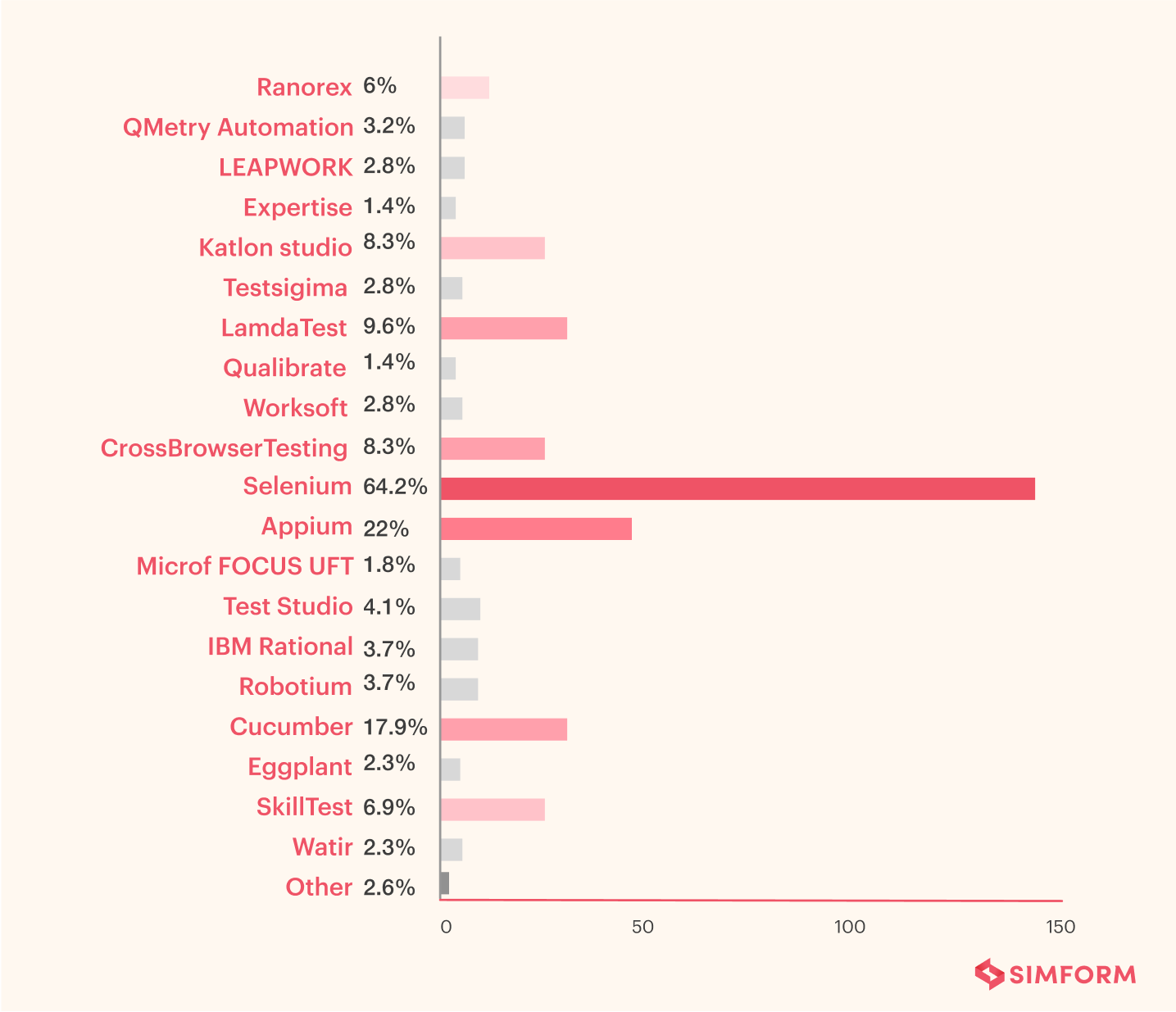The most common answer to the need for test automation is to reduce the time for a software release. And while this is just the tip of the iceberg, there are many obvious benefits of choosing test automation as organizations transition from traditional to agile software development approaches.
It is observed that over the past few years, Agile and DevOps aren’t just the buzzwords but have become rigorous practices in most organizations. With agile becoming the necessity of modern software development for its fast-moving and collaborative qualities, it made test automation a mandatory step to keep up with the fast-moving approach of software releases. Today, organizations have recognized the need for productive work environments and the need to speed up the related processes that make them stand out in the marketplace.
To measure how much we are actually invested in adopting test automation, we conducted a test automation survey.
The data collected from the software testing statistics from different testing industries will help tech leaders, QA managers, automation testers, and their teams to understand the true power of automation testing and how it unlocks the strategic potential of becoming genuinely agile!
This test automation statistics sought some fantastic numbers that introduced to…
Software testers involved in test automation based on their role and experience
A total of 1579 participants completed the survey, out of which 24.5% people are Software Developers, 18.4% are Automation Testers, 17.9% are Manual Testers, and a significant 9% are Project Managers, 6.6% are Test Managers, while 7.1% are C-level Executives.

Among them, 25.5% of survey participants have less than 1 year of experience with test automation, 21.7% have more than 1+ years of experience, 20.8% have no experience, 17% have 3+ years of experience, and 15.1% have 5 years of experience.
The above graph depicts the percentage of people with their years of experience.
Though software testing seems to be making many moves and continually advancing with the technology landscape; we observed that many development teams still abandon the idea of adopting DevOps at all or after it doesn’t work for a quarter or two.
The following graph depicts that most respondents admit to having a designated DevOps team in their organization while the remaining 40.1% don’t.

Availability of skills for test automation
Automation testing benefits enterprises in speeding up the testing process and making deliveries in the stipulated time, which makes it an evident replacement of manual testing process for organizations. Most enterprises, these days, prefer automation testing as a part of the agile software development process. And probably that’s the reason that every software firm is in search of a skilled automation tester.
Interestingly, as the software testing market size exceeded USD 40 Billion in 2020 and is expected to grow at a CAGR of over 7% in coming years, the numbers revealed that 79.9% of respondents had the required skills for test automation, whereas 20.3% denied the same.

Test automation preferences
Choosing the proper test for automation is essential. Even if you’ve mastered test automation skills, it’s vital to consider what makes a test eligible for automation. On asking questions to participants about which tests do they prefer to automate, we got some impressive numbers.
Here we can see that the most preferred tests for automation are…
- Functional testing(66.5%)
- API testing(54.2%)
- Regression testing(50.5%)
- Smoke testing(38.2)
These tests involve a lot of repetitive work and data entry. Plus, they have clear pass/fail results, so they are the most preferred tests for automation.
While the least automated tests are…
- Probability testing(5.7%)
- Story-level tests(12.3%)
- BDD framework tests (13.7%)

Testing tool preferences and selection criteria
The selection of the tool is largely dependent on the Application Under Test(AUT), however, there are few general considerations that were highlighted during our survey,
- More than half of the respondents(50.9%) stress on having proper training documents and tutorials for the tools
- Functionality and feature-richness is also one of the top-most concerns (48.2%)for tool selection criteria
- While 45.4% of the respondents count on the tools ability to generate good test reports,
- A similar number of respondents(45.9%)cited the level of programming skills required to operate the tool as a key decision-maker
When it comes to preferences for the test automation tools, some of the highlighted ones are among the popular ones, Selenium (64.2%), Appium (22%), and Cucumber (18%)
Many of these tools have been in the market for a long time. We’ve been using them extensively at Simform though it’s a subjective thing for one person as it depends on the individual’s requirements.
- Features & functionalities
- Licensing & costs
- Skills required & support
- Overall community
